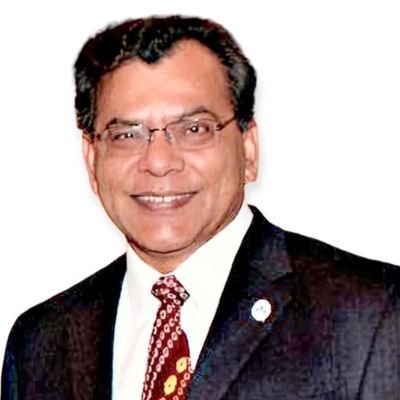Yuva Biosciences, a startup company founded by Keshav K. Singh, Ph.D., professor in the Department of Genetics, has secured $7.5 million in seed funding that will be invested in resources aiming to restore mitochondrial dysfunction for multiple indications while helping to combat hair loss.
Mitochondrial dysfunction, long considered to be a pivotal factor related to overall aging, has now been proven by Singh to be a critical cause of aging for hair as well as skin. Yuva Biosciences has already partnered with BosleyMD, a hair restoration company, and will use YuvaBio Y100 as a tool to facilitate new hair regrowth products. Singh discussed his company and the efforts put into solving a longstanding problem.
How important was it for you to address the issue of mitochondrial dysfunction?
After completing my postdoctoral training at Harvard, I began my career at Johns Hopkins and planned to address the question of mitochondrial dysfunction in cancer. At that time, little was known about mitochondria's role in cancer. I realized that for many decades, the role of mitochondria was studied in cells and occasionally in tissues and organs. There are diseases of mitochondria where mitochondria are primarily involved, and then there are diseases in which mitochondria are involved, i.e., secondary mitochondrial diseases. Mitochondrial dysfunction is also one of the hallmarks of aging, as well as cancer. Therefore, addressing the issue of mitochondrial dysfunction was extremely important for understanding cancer, aging, and many other diseases. Consequently, we developed a mouse model to address these diseases associated with mitochondrial dysfunction.
In 2018, you led a notable study that addressed the topic of possibly reversing mitochondrial decline. How innovative do you feel that Yuva Biosciences has been and will be in addressing hair loss?
Our groundbreaking 2018 study received extensive coverage, reported in over 100 languages, as well as in top newspapers, magazines, and TV stations. For the first time, we provided direct evidence that mitochondrial dysfunction leads to aging and is reversible. We focused on skin and hair loss in that study, but since then, we have also been studying ovarian aging, as ovaries age much faster than the other organs in a woman's body, which drives the aging of multiple organs and is associated with reduced health span due to more than a dozen post-menopausal diseases. Our mouse platform shows menopausal characteristics observed in women, including hair loss. We are addressing this unmet need utilizing innovative approaches developed at Yuva Biosciences.
Can you discuss how the partnership with BosleyMD came about for this project?
Several products in the hair loss market sell for several billion dollars a year. For example, minoxidil has many side effects, takes many months to work, and is effective in only 20-30 percent of men. In women, it is even less effective. However, the minoxidil market alone is $1.5 billion a year. We felt this field lacked innovation since minoxidil was introduced about 25 years ago. We developed innovative approaches based on mitochondrial science, including Y100, and approached BosleyMD who guided us during the clinical trials. After the presentation of our clinical trials, we formed a commercial partnership, and the product, Revive +, is now available in many different retailers, including Walmart, CVS, Amazon, and more.
With Yuva Biosciences, how important was it for you and your team to be able to translate science into a product that addresses a common problem and that can be used by consumers?
It was imperative. I was driven by the lack of any product for patients undergoing chemotherapy. Almost every type of cancer treatment induces hair loss in patients, and the only thing available is a cold pack, which does not stop hair loss. My previous goal was to address chemotherapy-induced hair loss, but since hair loss (including age-related hair loss) is a big market, we planned to address that. Soon, we will address chemotherapy-induced hair loss as well.
What do you hope the future looks like concerning translating science to products that will help other health concerns people face?
The future is exciting. We have a product in the pipeline to address skin aging. We recently announced our partnership with Elevai, utilizing their exosome platform to develop next-generation skin longevity products. Some of the other areas we are addressing are senile lentigines, hair graying, sun-induced freckles, and pigmentary diseases.
This breakthrough technology has been described as one of the biggest innovations in hair loss seen in the last 25 years. What do you feel were some of the challenges in getting to this point with Yuva?
The most challenging part was the product development. Usually, it takes about 3-4 years to bring a brand-new product to market by big companies. We faced challenges related to scaling up production of Y100, supply chain, formulation, and deadline to get the product to market in less than six months to distribute to Walmart, CVS, and other retailers in the US and overseas. Our team worked very hard and was able to meet the goal. The product is now available in stores all across the United States and in several other countries.
What is next for Yuva Biosciences? What are some of the things you hope to accomplish?
There are several ongoing product developments at Yuva Biosciences related to healthy longevity. Currently, we are carrying out drug discovery with Southern Research to mitigate ovarian aging, aiming to achieve healthy longevity in women.